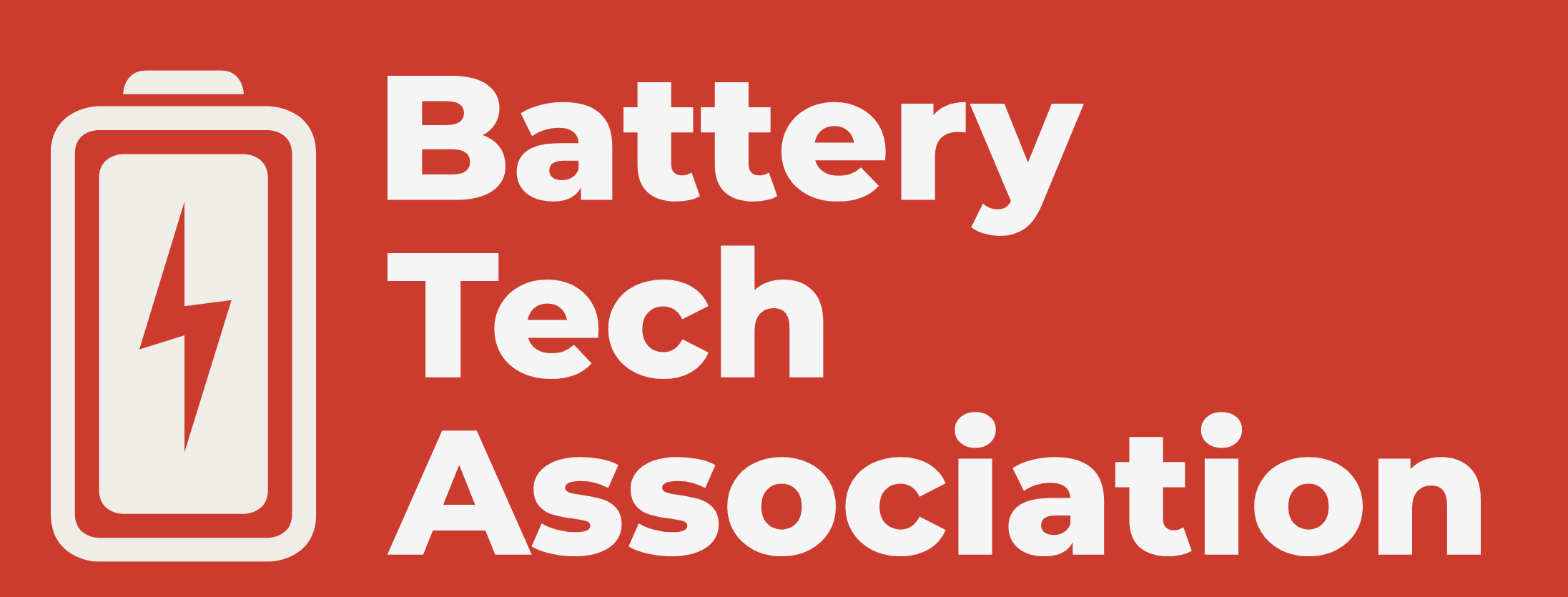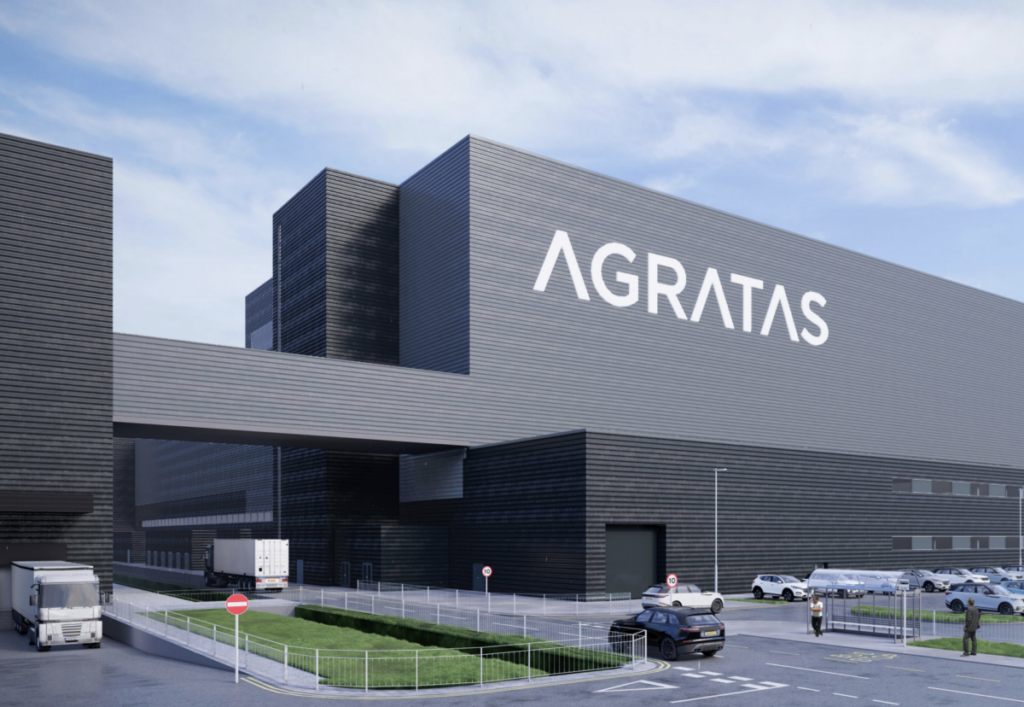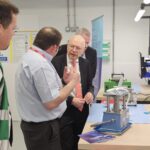Deepening academic-industry engagement and investing in PhD-level talent
HARWELL and COVENTRY, UK (23 January 2025) Agratas and the Faraday Institution have signed a multi-year agreement to partner on talent development for the UK battery sector. As part of that commitment, Agratas, the Tata Group’s global battery company, has funded a pilot of three PhD studentships, with the PhD researchers embedded in Faraday Institution projects.
Demand for highly skilled workers to deliver ambitions for a fully electric future has never been more pressing. With shared goals to further the UK battery sector, this partnership brings together industrial ambition and need for talent, with the Institution’s expertise in developing researcher talent for the sector.
Professor Martin Freer, CEO, the Faraday Institution comments: “The next generation of battery technologies will be developed by the next generation of battery researchers. This partnership’s commitment to talent development comes at a key time for the UK battery sector as we look to build on the nation’s distinct advantage in battery R&D as it competes in the global race to attract investment in battery manufacturing and innovation.”
Dr Valentina Gentili, Vice President of Global Research and Development, Cell Technology at Agratas, commented: “Agratas’s purpose is to pioneer power for future generations by fostering talent and driving innovation in next-generation battery technologies. We are so excited to be part of the vibrant UK ecosystem, collaborating with our partners the Faraday Institution and world leading academics, to shape a sustainable electric future for the UK.”
Matt Howard, Chief Strategy Officer, the Faraday Institution continues: “This partnership, which links our talent development initiatives with our mission driven research programmes, demonstrates the value of the Faraday Institution’s model. We look forward to deepening our relationship with Agratas, and hope that this will open the way for similar training initiatives with other UK-based industry organisations as we collectively continue to build a strong battery ecosystem.”
Since its inception, the Faraday Institution has delivered a bespoke PhD training programme, which equips doctoral researchers for careers in academia, industry or policy in the battery sector. PhDs emerging from the programme have deep subject area expertise, myriad of soft skills, and broad knowledge of the industry ecosystem in which they will work.
The PhD researchers being funded by Agratas are three of a cohort of 16 that commenced the Faraday Institution PhD Enrichment Scheme in October 2024. They join 85 PhD researchers who are currently undergoing or have completed the PhD training programme, with 100 more PhDs affiliated with Faraday Institution projects. The three, four-year studentships will include industrial internships at Agratas.
The three PhD studentships funded by Agratas are:
- Becky Larner, University of Oxford, is working with Professor Patrick Grant and Dr Guillaume Matthews on advanced manufacturing as part of the Nextrode project.
- Chris Smith, University of Cambridge, is working with Professor Dame Clare Grey and Professor Michael De Volder on battery degradation.
- Tihana Štefanić, University of Oxford, is working with Professor David Howey and Professor Charles Monroe on the Multi-scale Modelling project.
Becky Larner comments: “I obtained an MSci in Chemistry from Cambridge University where I researched sodium-ion batteries with the Grey group. Now I am a first year DPhil student researching electrodes for sustainable lithium-ion batteries at the University of Oxford, supervised by Professor Patrick Grant.
“I was attracted to this project because I find energy storage technology really interesting and want to help make it more sustainable.”
Chris Smith comments: “I am currently a PhD researcher at the University of Cambridge, having previously graduated with a BEng in Materials Science and Engineering from the University of Sheffield and an MSc from Imperial. Prior to starting my PhD, I worked as a Materials Research Engineer in developing polymeric materials for flexible screens and electronics. This gave me practical experience with the challenges related to industry research and developing the back-end application. However, this did not satisfy my aspiration to positively contribute to the environment and the transition towards a more sustainable future.
“Battery research ties together my fascination with fundamental materials chemistry whilst aligning with my environmental consciousness. Being co-supervised by Clare Grey and Michael de Volder is truly brilliant, they are both at the top of their field and I cannot wait to produce meaningful research with them. I am delighted to be collaborating with Agratas as this facilitates academia and industry working together striving for a better future, whilst simultaneously giving my research real-world impact.”
Tihana Štefanić comments: “After receiving my degree in chemical physics, I was inspired to pursue research into battery modelling at Oxford University to continue my interdisciplinary interests in physics, chemistry, and energy engineering. Having spent a year working in industry, I was excited by the prospect of a project with industry ties and am honoured to be among the first PhD students to be sponsored by a world-class industry partner such as Agratas.
“Additionally, being part of the Faraday Institution’s training programme has made the first few weeks an overwhelmingly positive experience. I am looking forward to developing safer battery technology in my DPhil and hope to continue working on sustainable energy solutions in my future career. My project is based in the Monroe and Howey research groups.”
Download images of the three PhD researchers.
Notes to Editors
About the Faraday Institution
The Faraday Institution is the UK’s independent institute for electrochemical energy storage research, skills development, market analysis, and early-stage commercialisation. Bringing together expertise from universities and industry, the Faraday Institution endeavours to make the UK the go-to place for the research and development of new electrical storage technologies for both the automotive and wider relevant sectors. Headquartered at the Harwell Science and Innovation Campus, the Faraday Institution is a registered charity with an independent board of trustees, and a delivery partner for the Faraday Battery Challenge.
For more information on the Faraday Institution, visit www.faraday.ac.uk and follow the organisation on LinkedIn.
The Faraday Battery Challenge at UK Research and Innovation is delivered by Innovate UK. The Challenge is making the UK a science and innovation superpower for batteries, supporting the UK’s world-class battery facilities along with growing innovative businesses that are developing the battery supply chain for our future prosperity. Its aim is to build a high-tech, high-value, high-skill battery industry in the UK.
About UK Research and Innovation
UK Research and Innovation (UKRI) is the largest public funder of research and innovation in the UK, with a budget of around £8bn. It is composed of seven disciplinary research councils, Innovate UK and Research England.
We operate across the whole country and work with our many partners in higher education, research organisations businesses, government, and charities.
Our vision is for an outstanding research and innovation system in the UK that gives everyone the opportunity to contribute and to benefit, enriching lives locally, nationally and internationally.
Our mission is to convene, catalyse and invest in close collaboration with others to build a thriving, inclusive research and innovation system that connects discovery to prosperity and public good.
www.ukri.org
About Agratas
Agratas is a global battery business within the Tata Group. We will design, develop and manufacture high-quality, high-performance, sustainable battery solutions for multiple applications to match our customers’ requirements.
Derived from the Sanskrit word ‘Agra’, the world’s oldest language, our name stands for leadership and moving forward. Combined with ‘Gravitas’, it reflects our ambition to be purpose driven, pioneering power for future generations.
We have entered our industrialisation phase, building world-class battery facilities in India and the UK, and unlocking green growth opportunities for global customers in the mobility and energy sectors.
Our R&D Innovation Hubs in India and Oxford, UK are empowered to accelerate technological breakthroughs across our entire value chain, working in partnership with leading universities and research institutions to deliver cleaner, greener, more sustainable batteries for our customers. Together, we will pioneer the innovative battery solutions of the future.







